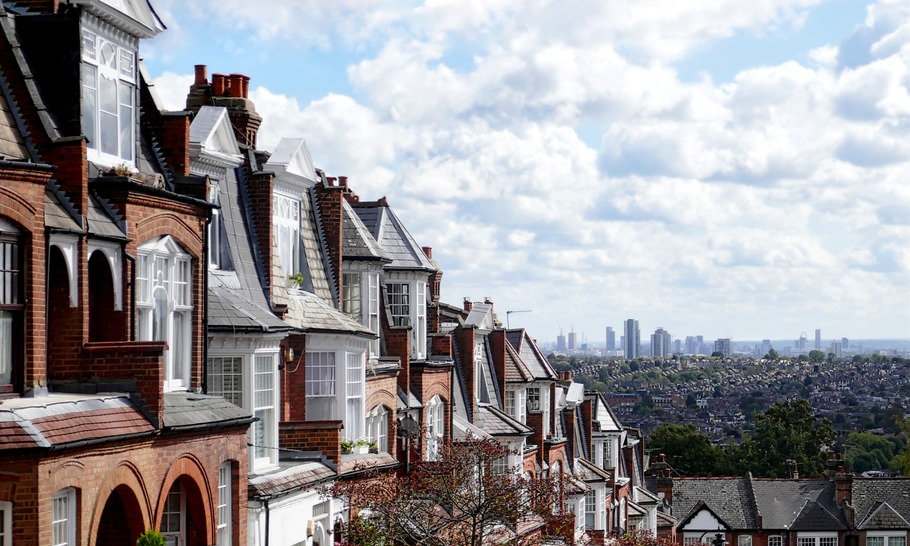May’s technocratic meddling won’t fix the housing crisis

“The housing market is broken,” politicians of all stripes routinely announce. We’ve noticed. For most people, becoming a homeowner is still an aspiration but – without financial support from their parents – an increasingly distant one. So, they rent – but the housing shortage means rents are high, making it harder to save for a deposit.
Usually politicians add that they are determined to “fix” this broken housing market. But at that stage ambiguity slips in. Do they mean to “fix” it by allowing a proper market to operate, or by diminishing the role of the market still further?
Generally, it would seem to be the latter. The Labour Party favours the return of rent control – despite the abundant evidence that it failed in Britain in the 1970s, and wherever it has been tried across the globe since.
Another idea is for the state to step in and provide more housing. This is favoured not just by Labour but also by the Conservatives. At the Conservative Party Conference in Birmingham, Theresa May spoke of a £9 billion programme for councils “to get them building again”. She announced: “There is a government cap on how much they can borrow against their Housing Revenue Account assets to fund new developments. Solving the housing crisis is the biggest domestic policy challenge of our generation. It doesn’t make sense to stop councils from playing their part in solving it. So today I can announce that we are scrapping that cap.”
Last month the Prime Minister was also praising “social housing”. She conceded that “a certain stigma still clings” but that “it shouldn’t be this way”. The Prime Minister declared: “I want to see social housing that is so good people are proud to call it their home.” She added that “The rise of social housing in this country provided what has been called the ‘biggest collective leap in living standards in British history’.”
Really? Because that’s not what I’ve heard. Most people accept that much ‘social housing’ has proved anti-social. Ugly concrete slab blocks and tower blocks have destroyed community spirit. The issue is not new. As Enoch Powell said in 1968: “While every other element of the standard of living has streaked ahead, housing for millions has obstinately lagged behind. It is the paradox and the parable of the slum with the television set inside and the motor car outside.” Since then, there have been ‘slum clearances’, but a new squalor has emerged; all too often horizontal slums have been replaced by vertical slums.
It is not a matter of ministers telling local authorities and housing associations to buck up and provide a better service – nor will finding a few more billion for “decent homes” do the trick. Where the tenant is effectively trapped by the subsidised rent, the landlord will never need to bother much.
Boris Johnson, also speaking at the Conservative Conference recalled being a young reporter on the Wolverhampton Express and Star and being sent to see a couple who were complaining about damp. “It was a terrible scene”, he said. “They were sitting there and with the heating on full blast and a baby crying, and the condensation dripping down the window, and there were these great black spores all over the wall. The chap was in his socks in an armchair and in a state of total despair. He was worried about the baby’s cough – which was getting worse. The council wouldn’t do anything, and he felt he couldn’t do anything – because it was not his property, and I could see that he felt somehow unmanned by the situation. And I felt very sorry for them both – because they were total prisoners of the system.”
Any MP or councillor would be able to give endless similar examples. In fact, asked to do so, anyone could produce a list of such cases. Just spend an hour knocking on doors in a council estate.
The answer is not to tell people that they shouldn’t feel any “stigma” about living in such awful conditions, or to instruct them to “feel proud”. Nor is it to build more such homes (or rather “housing units.”)
The way to fix the market is not to distort it further. It is to allow it to function properly.
The supply of housing should be dramatically increased by a reduction in planning restrictions – including allowing development on the misleadingly named ‘green belt’. But that presumption to develop new homes should come with the caveat that it is of a design that local people favour. That is likely to be beautiful, attractive, traditional housing – rather than the brutalist constructions that the architects and planners like to impose on us.
Rather than spending money, the state could help in way that would improve the public finances. That is, by selling land. The Ministry of Defence owns 553,000 acres; that’s bigger than Surrey. Network Rail owns another 128,000 acres. Much of it is surplus to requirements – as is, of course, a lot of council owned land.
In short, Conservatives can solve the housing problem by applying Conservative principles. Technocratic meddling will make things worse – as would cravenly offering a mild dose of socialism. The motive should be clear as well. Wider home-ownership is a core part of the Conservative mission. It should not just be seen as some desperate expedient to avert the threat of a Corbyn Government.
There is a snag. If supply is to be increased to the extent necessary to make home-ownership even remotely affordable to those on average incomes then it follows that house prices must fall. This is not an objective that is openly stated. But it is what genuinely fixing the housing market must mean. “Affordable housing” is currently a bureaucratic construct involving rationing, quotas and subsidies – which often ends up being unaffordable. Only the market can end scarcity and provide true affordable housing.





